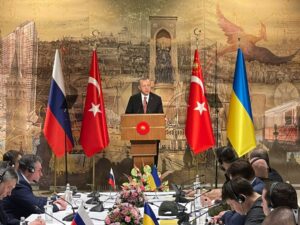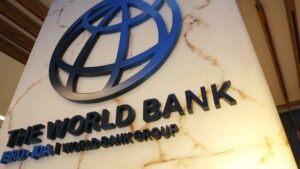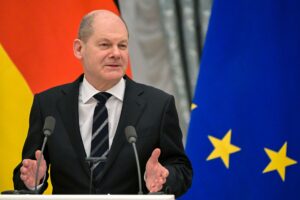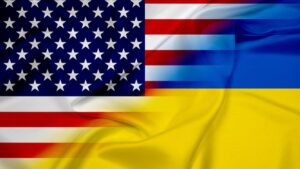
U.S. Treasury Secretary Janet Yellen called an additional $500 million financial aid package to Ukraine, previously announced by U.S. President Joe Biden, “only the beginning,” the Associated Press said.
“We plan to deploy this direct aid to Ukraine as soon as possible, to be used on the most urgent need. This is only the beginning of what Ukraine will need to rebuild,” she said.
Thus, this package will be provided in addition to the $500 million that Biden announced in March, the agency notes.
Speaking of sanctions against Russia, she noted that the U.S. continues to “tighten the vise of our economic pressure campaign.”
“Europe clearly needs to reduce its dependence on Russia in respect to energy. But we need to be careful,” Yellen said.
Yellen met with Ukrainian Prime Minister Denys Shmyhal and Finance Minister Serhiy Marchenko on Thursday.
Earlier, Yellen and several other officials, including European Central Bank President Christine Lagarde, left the room during the speech of Russian Finance Minister Anton Siluanov at the G20 meeting in Washington. So did U.S. Federal Reserve Chairman Jerome Powell and Canadian Deputy Prime Minister Chrystia Freeland.
Yellen stated that Russia should be excluded from the G20 and that she intended to boycott events where Russian officials would speak.

Turkish President Recep Tayyip Erdoğan on Friday reiterated that Ankara is ready to organize a meeting of the heads of Russia and Ukraine, Anadolu said.
“Turkey is making efforts to continue the Istanbul process between Russia and Ukraine, and is ready to organize a dialogue at the level of heads of state,” the agency said.
Erdoğan also expressed hope for progress in the Ukrainian-Russian negotiations.
“There is progress. However, they are far from desired. We hope for progress. We do not lose hope,” Anadolu said, citing the Turkish leader.

The World Bank will provide Ukraine with $4.8 billion for recovery following a roundtable talk held in Washington on April 21 along with the Ukrainian government, President of Ukraine Volodymyr Zelensky has said.
“Yesterday, during a ministerial roundtable talk, I turned to the World Bank. The result is $4.8 billion for the restoration of Ukraine,” the head of state said on Instagram.
He thanked that Ukraine “is heard and supported.”
“With such help, we will be able to quickly restore the country,” Zelensky said.
As reported, the president of Ukraine, in his speech at this roundtable talk via video link, said the country needs support in the amount of up to $7 billion monthly, while Prime Minister Denys Shmyhal said that $4 billion to $5 billion is needed to cover the budget deficit.

Peace, not secured by an appropriate agreement, will not free Russia from international sanctions, said German Chancellor Olaf Scholz.
“Russia is in a very difficult situation, the sanctions are causing serious damage to the Russian economy,” Scholz said in an interview with Spiegel.
A “cold peace” that is not secured by an agreement will not free Russia from sanctions,” the chancellor added.

Prime Minister of Ukraine Denys Shmygal discussed with US Secretary of Commerce Gina Raimondo the development of bilateral trade and the reduction of trade barriers.
“Denis Shmihal noted the importance of continuing and strengthening sanctions pressure on Russia in order to reduce its ability to finance the war against Ukraine. An important blow to bleed the Russian economy and the Russian military machine should be the sanctions of the energy sector. According to the head of government, this concerns the imposition by partner countries of an embargo on the import of oil, gas, coal and nuclear fuel from Russia,” the government’s press service said in a statement.
Shmyhal urged countries to look for ways to diversify sources of nuclear fuel supplies to reduce dependence on Russia.
The prime minister also focused on the need to identify and eliminate any loopholes and potential opportunities for Russia to circumvent the already imposed sanctions.
“Russia is trying to adapt to some sanctions with the help of certain countries and companies. We will work with our partners to eliminate such opportunities for Russia,” he stressed.
It is noted6 that one of the most important tracks, according to Shmyhal, is a large-scale restriction of Russia’s trade opportunities while expanding the opportunities for unhindered trade for Ukraine by reducing import quotas and barriers for strategic sectors of Ukrainian industry.
According to him, along with the financial support of international partners, it is equally important for Ukraine to open new markets for Ukrainian-made products, in particular, this applies to products of the steel industry and the agro-industrial complex.
In particular, Shmyhal noted that the release of Ukrainian steel from US duties would allow for a stable supply of metallurgical enterprises with orders, and thousands of Ukrainian metallurgists with jobs.
COOPERATION, PM, UKRAINE, US

Mining company Ferrexpo with assets in Ukraine in 2021 increased its net profit by 37.1%, to $870.99 million, with revenue growth of 48.1%, to $2 billion 518.23 million, according to the company’s report on the London Stock Exchange in Friday.
According to it, EBITDA profit increased by 67.5% to $1 billion 438.76 million.
The report also notes that the company’s gross debt fell from $266 million to $50 million last year, while its net cash position increased from $4 million to $117 million.
Ferrexpo says its manufacturing assets were not affected by the hostilities after Feb. 24, but shipping has been halted since Feb. 25, with only shipments to Europe currently taking place.
Commenting on the impact of the war on operations and financials, Ferrexpo says it has adjusted its long-term model to reflect lower sales volume caused by a lack of offshore sales to its customers. The expected lower sales volume will have a negative impact on cash flow generation, which in turn will negatively affect the carrying value of the group’s non-current assets in future periods. However, Ferrexpo has so far refrained from making any assessments.
At the same time, Ferrexpo said it had prepared stress tests with more severe adverse changes such as a 3, 6 and 18 month production halt. Under these stress testing scenarios, the impairment loss could increase to between $320 million and $400 million, again depending on circumstances and macroeconomic data that would only be known to the Group at the time of preparation of the interim condensed consolidated financial statements for the six months ended 30 June 2022.